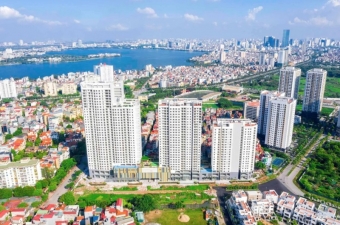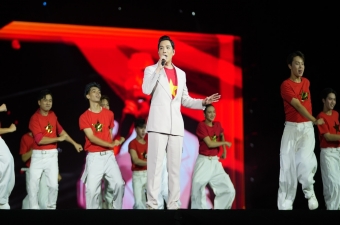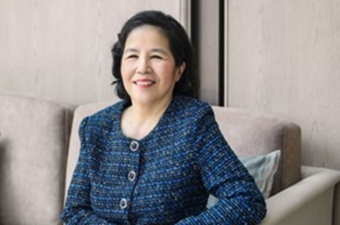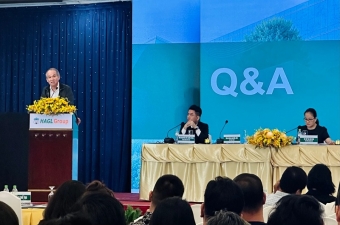Mr. Truong Van Dan - Writer: There Should Be A Day To Honor The Vietnamese Language For Native Vietnamese, Too
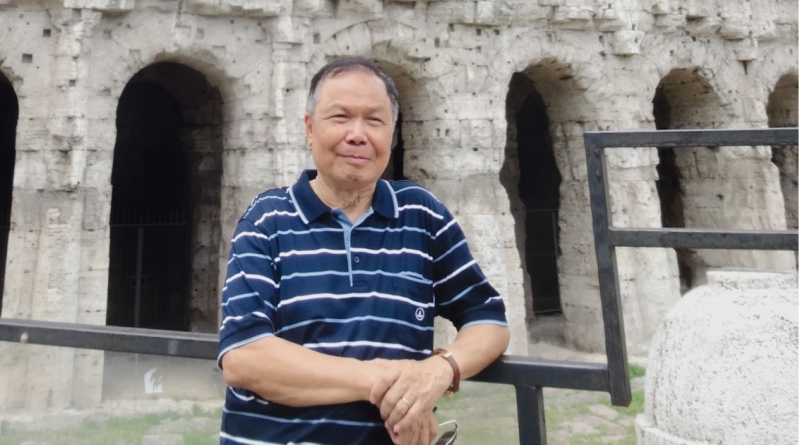
According to Decision No. 930/QĐ-TTg approved by the Prime Minister on August 3rd 2022 upon the Project of setting a day for the honoring of the Vietnamese Language among the Vietnamese communities overseas for the period between 2023 and 2030, the date of September 8th has been chosen to be the official day on which the Vietnamese Language is honored. This Project has been launched to enable Vietnamese everywhere to preserve, honor, and popularize the beauty and the value of the Vietnamese Language, and to contribute to the elevation of the pride in and the promotion of the cultural identity of the Vietnamese people at the same time. Below is The writer Truong Van Dan's opinion about this special day for honoring the Vietnamese Language.
SEPTEMBER 8TH HAS BEEN CHOSEN TO BE THE DAY FOR HONORING THE VIETNAMESE LANGUAGE AMONG THE VIETNAMESE COMMUNITIES OVERSEAS, STARTING FROM 2022. COULD YOU GIVE YOUR OPINION ABOUT THIS PARTICULAR DAY?
I think “A Day to Honor the Vietnamese Language” is a good thing. Through this day, we can enhance the awareness of our own language in overseas Vietnamese communities, at the same time help make the Vietnamese language more even lucid and more beautiful, and encourage the study of the language and the culture of Vietnam as well.
However, why should we look to honoring the Vietnamese Language among Vietnamese communities who are living abroad only? It is natural to see the rationale of this view. All overseas families – the ones in which both spouses are Vietnamese, and the ones in which only one spouse is Vietnamese, all should be encouraged to keep communicating in Vietnamese in order to stress the importance of the language in their daily life, and, at the same time, engage the native people of that country in our mother tongue.
On the other hand, this kind of day is also necessary for native Vietnamese people. This is because there have been reports from linguists and intellectuals that a considerable number of young people nowadays tend to make a lot of spelling mistakes, choose the wrong terms, and write with very little regard to grammar and syntax. Therefore, these youths still need to learn and relearn Vietnamese.

YOU ARE KNOWN TO HAVE RESIDED IN FOREIGN COUNTRIES FOR OVER 50 YEARS, BUT YOU STILL MANAGE TO PRESERVE YOUR VIETNAMESE INTACT. YOU ARE NOT ONLY WRITING BOOKS IN VIETNAMESE, BUT ALSO TRANSLATING SEVERAL WORKS BY YOUR WIFE, MS. ELENA PUCILLO. COULD YOU GIVE OUR READERS MORE DETAILS ABOUT THIS?
When I was 19 years old - that was just before I went to study in Italy in 1971 – my father used to remind me: “Once in a foreign country, you have to integrate into the new culture and society, but never allow that to make you forget where you are from.” I always keep my father’s words in mind. Therefore, very few make me out as a “Việt kiều” (Vietnamese expatriate) whenever I return to Vietnam. The reason is I am always the same person as I used to be, still retaining my former rural manner, habit, and conduct perfectly. My Vietnamese is also as good as before because I still read lots of Vietnamese books. To be frank, the first time I was back to Vietnam, I did have some difficulty with several new strange terms and expressions, but I was able to remember them after a while. I always try to use Vietnamese only in everyday communication, and never slip a foreign word in during conversation with other Vietnamese people.
I studied and worked in chemistry and pharmacy. However, because I have had a passion for literature since I was a little boy, I started to translate and write again when I had a stable job - that was in 1996. My wife Elena used to teach French culture in Italy, and she occasionally wrote an article or two for some Italian newspapers and magazines. When she accompanied me back to settle down in Saigon, I encouraged her to write fiction. Elena composes her works in Italian and I translate them into Vietnamese. Her collection of short stories Một phút tự do was awarded the HCMC Association of Writers Prize in 2015, and Vàng trên biển đá đen, another collection of her short stories, won the 2018 HCMC AW Best Translated Book Prize - the latter was hailed by several literature professors as a work of pure Vietnamese style and spirit.
In my opinion, being good at foreign languages does not mean being able to translate books (and other things) well. When translating a work, translators need to reproduce the foreign writer’s moods and emotions in their mother tongue, and that requires them to be good at both the source language and the target language, and to get to know both cultures well, too.
WHAT DO YOU THINK SHOULD BE DONE SO THAT VIETNAMESE YOUNG PEOPLE, LIVING ABROAD AS WELL AS IN VIETNAM, CAN DEVELOP A SENSE OF PRIDE IN THE VIETNAMESE LANGUAGE?
I think overseas Vietnamese families should keep using Vietnamese in their daily life. Although my nephews and nieces were born in foreign countries, they were taught to speak good Vietnamese. One of my friends lulled her baby to sleep with Vietnamese songs and rhymes. In my novel Ước hẹn cuối cùng, which is due to come out in the Italian language with the title L’ultima Promessa, all the names of people and places retain the pure original Vietnamese script. In this same novel, I include, whenever possible, passages about the culture of Vietnam, extracts from such critical events in Vietnamese history as Đại Việt’s triple victories over the Nguyên Mông (Mongolian/Yuan) armies, or the battle of Đầm Thị Nại (Thị Nại Lagoon), using these as ways of disseminating Vietnam’s culture.
In Vietnam at present, I notice that a number of Vietnamese parents focus on their children’s acquisition of English skills while paying little attention to their Vietnamese learning. In my opinion, in addition to equipping their children with English skills so that they can easily integrate into the international environment, parents should also encourage their children to practice the Vietnamese language as much as possible. They may, for example, help organize sessions of story-telling or reading competitions. The activities are bound to help their children to gain a better understanding of the wealth of our mother tongue and to be able to speak and write Vietnamese more precisely as a result.
Thanks for your sharing.
| * The writer Truong Van Dan studied chemistry and pharmacy in Italy in 1971. * He worked in the chemistry and pharmacy industries there between 1980 and 1985. After 1985, he worked in the research and development sector to develop drugs used on humans and also on animals. * He has been writing and translating books, and contributing articles to domestic and foreign magazines. * His published works include Hành trang ngày trở lại; Bàn tay nhỏ dưới mưa; Mùa hè tươi đẹp; Bóng của ngày; Một phút tự do; Vàng trên biển đá đen; Milano Sài Gòn, đang về hay sang; Trò chuyện với Thiên thần; Cùng bay về tâm dịch; Hạt bụi lênh đênh; Gia đình, Những nỗi đau ngọt ngào. * He has recently completed two other books: Lỗi định mệnh and Ước hẹn cuối cùng, which are going to come out soon |
Saigon New Day
Keywords : NHÀ VĂN TRƯƠNG VĂN DÂN, TÔN VINH TIẾNG VIỆT






